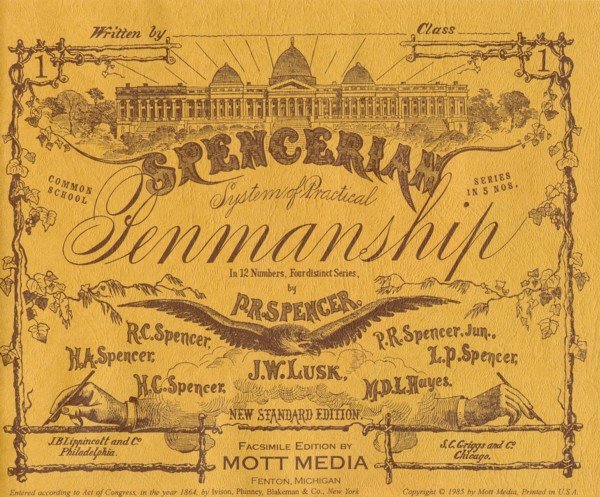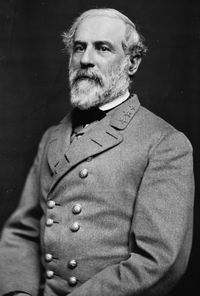 Which way should I take this blog? It is time for me to take a good long look at the three blogs that I write and decide where to go next. In addition to the Confederate Colonel blog, I also write The Southern Agrarian blog and have started on what is tentatively named The New Southern Agrarians. Each of these three has “Southern” as a common theme, and that will continue to be the major focus. Let’s start with how each was originally designed:
Which way should I take this blog? It is time for me to take a good long look at the three blogs that I write and decide where to go next. In addition to the Confederate Colonel blog, I also write The Southern Agrarian blog and have started on what is tentatively named The New Southern Agrarians. Each of these three has “Southern” as a common theme, and that will continue to be the major focus. Let’s start with how each was originally designed:
Confederate Colonel first went on-line in 2007. Here are the stated objectives:
Confederate Colonel Objectives
Our objectives are to promote, encourage, and defend:
• the code of the Southern Gentleman and Southern Lady as guidelines for daily living
• the customs and traditions of The Old South in our homes and in our daily lives
• the tradition of Southern hospitality and gracious living
• the culture, heritage, and symbols of The Old South
• the public display of Southern symbols in a proud and dignified mannerWe recognize that the code of the Southern Gentleman is best exemplified in the life of Robert E. Lee and other great leaders of the Confederate States of America.
We define Southern Culture as being the best of the antebellum period of The South.
A Southern Gentleman is usually also a Christian Gentleman. Christianity can shape and mold a man into a Southern Gentleman, or a woman into a Southern Lady. Confederate Colonel is a Christian web site.
Our Culture • Our Heritage • Our Kinship
Next in line came the Southern Agrarian blog. It started out focusing on Southern Agrarianism as a life style but became more of a how-to blog about raising a garden and poultry in The South. Recognizing that I had drifted away from my intended objective, I started work on The New Southern Agrarian blog. It has just gotten started and is little more than a concept and a domain name at this point.
For blogs that exist as a money-making project, the “Which Way Now?” question is pretty straight-forward: do what is going to make money. That is not the objective however, since this is a “labor of love” and an expense rather than an income. I have a lot more latitude in what I write about.
Here are some of the thoughts that are being considered:
- I would have preferred to not discuss historical issues, but I allowed myself to be drawn into it. Posts about slavery were a lightning rod that attracted some pretty vile comments (see the Hate Mail page for examples). Controversial topics about The South – especially about slavery – will be gone. I want to rise far above that level of discussion, so no more posts about it and no more replies about it.
- I have probably tried to spread myself too thin with three different blogs. After all, I do have a wonderful family to enjoy, a business to run, my Lord and Savior Jesus Christ to serve, and various other organizations and causes that I support. For that reason, my plan is to combine the three into one.
- Since Southern Agrarianism is a cultural phenomenon that includes all that Confederate Colonel was designed to cover, the end result will probably be called something with “Southern Agrarian” in the name (the ConfederateColonel.com domain name would still point to the new combined site).
- I have become aware of groups of people who practice an agrarian life style (note that “agrarian” covers a lot of ground, and does not mean subsistence-level farming – not even close). There is probably some good “cross pollination” that can be gained there. My hope is that I can help to pull together people from different groups and different areas with whatever we come up with here.
- While Southern Agrarianism has been a cultural movement, a political movement, a literary movement, a philosophical movement, and an agricultural movement, it is probably best described today as a life style. That is where the focus will be (which was the original intent for Confederate Colonel).
- On a more concrete note, I may be changing the overall look of the site to something more aesthetically attractive. I tend to be rather visually-oriented, so I hope to use a lot more photos to illustrate points and to perhaps inspire.
What are your thoughts? Where do we go from here? What specific topics would you like to see covered? Is there anything that you would like to see more of? What about the overall appearance of the site? Please use either the regular “Leave a Reply” or if you prefer, use the “Contact” feature to send an email that isn’t published.
Let me also use this opportunity to say “Thank You!” for reading what I write. Knowing that you have taken the time to read this blog is a very gratifying feeling, and I deeply appreciate it.
Contact Information: Please go to the Southern Agrarian blog for any contact needs.

 One of the main concepts of Agrarianism is the avoidance of industrial dehumanization and the embracing of that which defines us as individuals. We are not interchangeable parts in a corporate machine. All printing, by definition, looks pretty much the same. Cursive handwriting, on the other hand, reflects the personality and character of the person writing it.
One of the main concepts of Agrarianism is the avoidance of industrial dehumanization and the embracing of that which defines us as individuals. We are not interchangeable parts in a corporate machine. All printing, by definition, looks pretty much the same. Cursive handwriting, on the other hand, reflects the personality and character of the person writing it.


 Paula Deen has been seen as an icon of Southern culture – and that makes her a prime target for those who hate the culture of The Old South. While I am disappointed to see yet another public figure groveling for forgiveness that will never come, that’s another topic for another day. What was the horrible crime she committed that would lead to being kicked off of The Food Network?
Paula Deen has been seen as an icon of Southern culture – and that makes her a prime target for those who hate the culture of The Old South. While I am disappointed to see yet another public figure groveling for forgiveness that will never come, that’s another topic for another day. What was the horrible crime she committed that would lead to being kicked off of The Food Network?